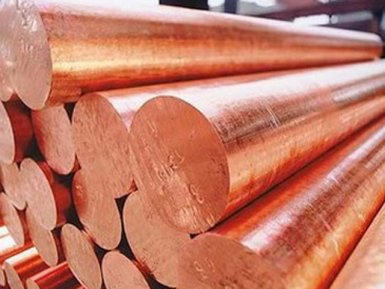Cold and hot deformation of nickel alloys

Are you interested in the hot and cold deformation of blanks from nickel alloys from the supplier company AvecGlob? Here you will find interesting information on this topic.
general characteristics
Nickel alloys are mainly used in extremely high temperatures and / or corrosive environments. Of these, components of jet engines, power plants, chemical equipment and parts of oil rigs are made. As a rule, nickel alloys are used in environments where the use temperature reaches 700 ° C. Only as a result of pressure treatment, forgings made of nickel alloys can have equiaxed grains in the microstructure, have optimal strength parameters, and effectively harden during cold plastic deformation.
Most often, the processing of pressure is subjected to rolled sections of nickel alloys such as Inconel®, Hastelloy®, Monel®, Nitronic®, CBS600, Haynes 188®, L605® and Rene 41®.
Urgency of application
Forgings of nickel and its alloys are used to manufacture parts and components that must withstand heavy operating conditions. Such forgings are ideal materials for parts used for pumps, valves, piping systems, process equipment,
turbines and aggregates in the marine, chemical, oil and gas, aerospace and military industries. Typical products are rings, discs, hubs, blocks, shafts, flanges and other deformable profiles and products.
Supplier — AvekGlob company — offers at a reasonable price from the manufacturer a diverse range of deformable nickel-based alloys. The supplier guarantees the timely delivery of products to any address specified by the consumer.
Features of the implementation of deforming hot stamping passages
When hot stamping it is important to ensure a uniform temperature distribution throughout the volume of the workpiece. The workpieces should be placed evenly, not too high or too close, which ensures good circulation and uniform thorough heating.
Heating cycles should be carefully planned and controlled based on the section size and alloy to be forged.
When heating, especially large cross sections, significant stresses arise due to the existing temperature gradient, as well as the resulting phase transformations. Some nickel-based alloys are susceptible to grain growth. For such alloys, before the hot treatment it is necessary to homogenize the ingot.
Forging should be carried out at temperatures not lower than or above the limits recommended by the manufacturer of nickel alloy. All considered alloys are very susceptible to grain growth when overheated. Evenly fine-grained forgings are necessary to ensure good fatigue properties at low-cycle loading, especially in complex forging configurations. Exceeding the temperature of the beginning of forging can cause one or several serious problems, including grain coarsening, overheating and burnout of carbon. The lower end of the forging range is determined by whether the metal can be plastically deformed. Many nickel alloys are prone to cracking if forging occurs at too low a temperature.
Supplier — AvekGlob Company — offers to purchase various grades of deformable nickel alloys. Products can be bought at a price formed on the basis of European and world standards of production. Implementation is possible in bulk and retail, for regular customers, a flexible system of discounts operates.


